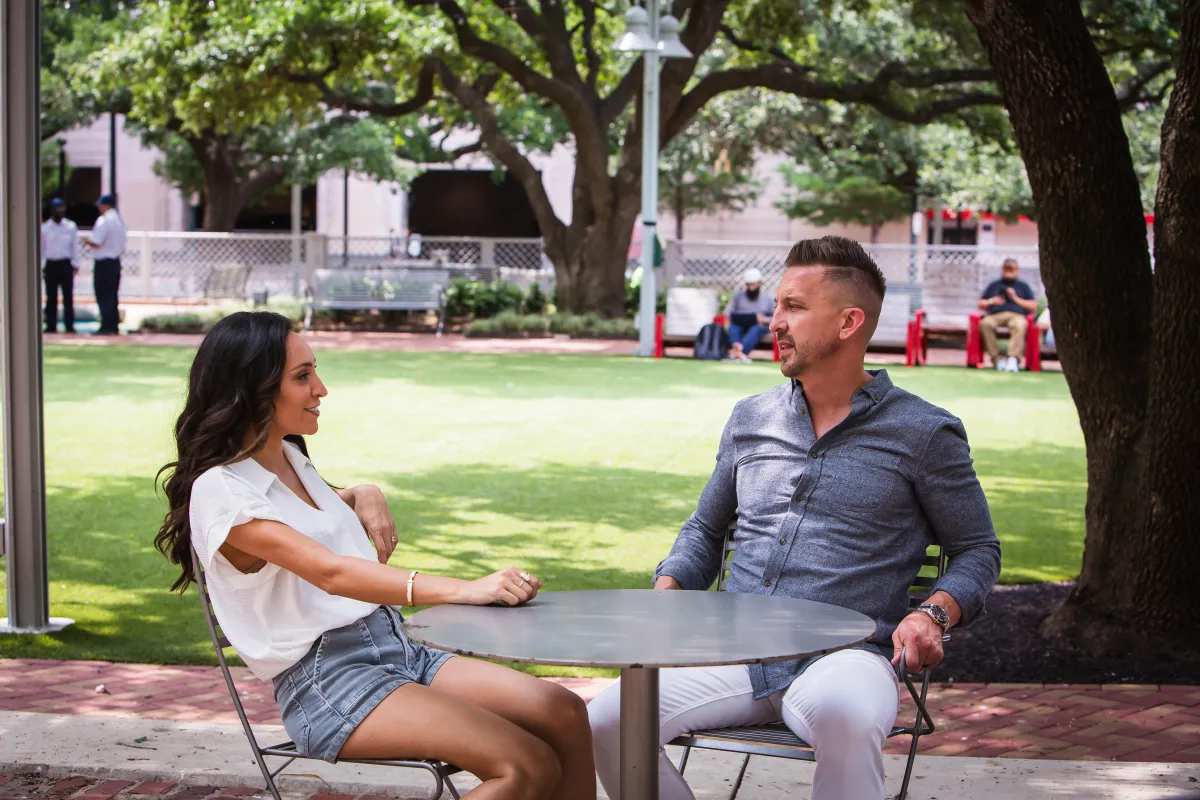WELCOME TO
THE OUTLIER BRAND
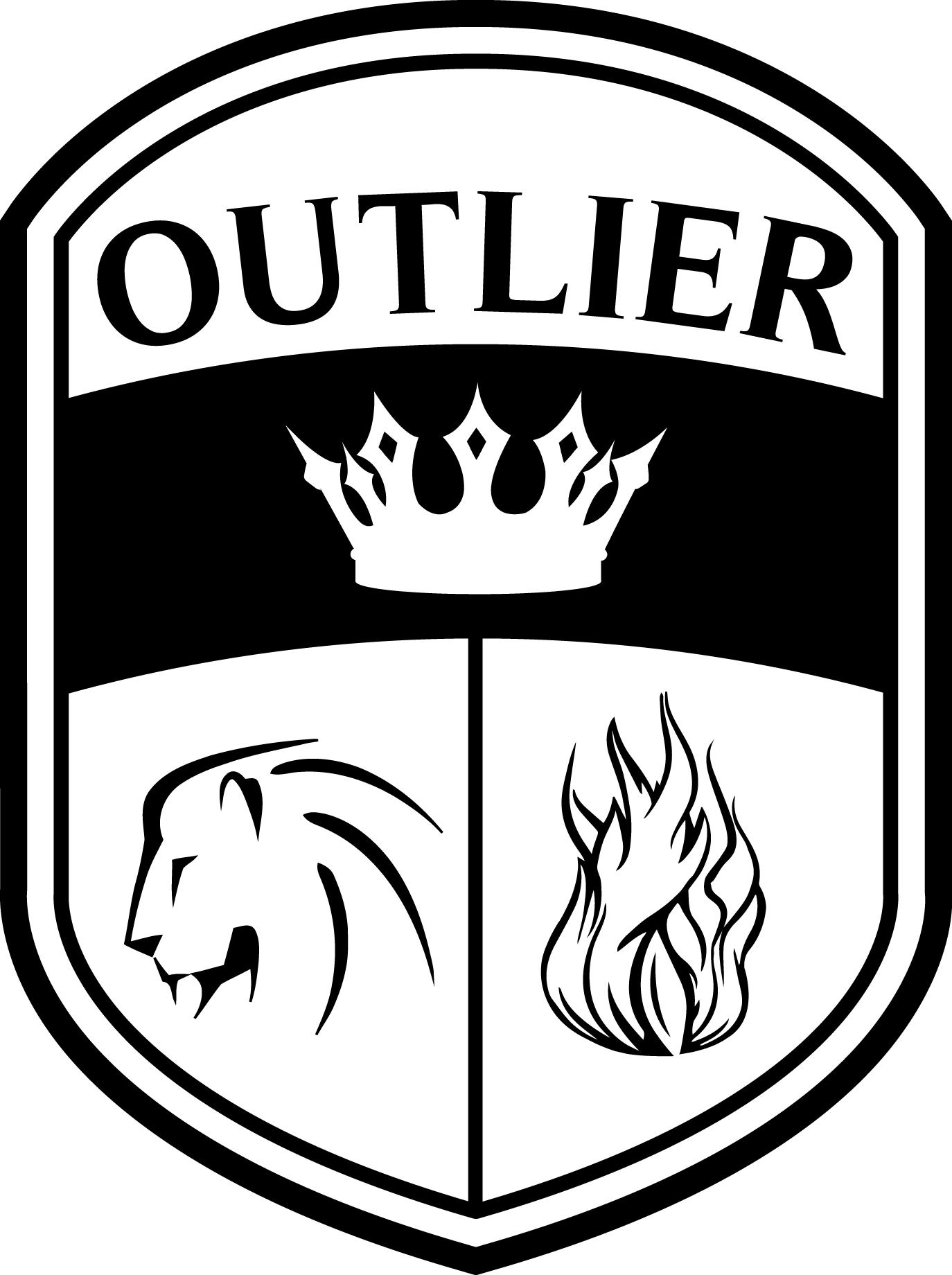
Helping People find freedom in Jesus outside of organized religion
Freedom from orphan-making systems that make you feel like you’re never enough.
Not loved enough
Not worthy enough
Not capable enough
Not chosen enough
Not secure enough
You are a son or daughter of God—royalty of the Most High. We’re here to remind you who you are and what you’re truly capable of.
Discover your purpose.
Unlock your identity.
fulfill your destiny.
Helping People find freedom in Jesus outside of organized religion
Freedom from orphan-making systems that make you feel like you’re never enough.
Not loved enough
Not worthy enough
Not capable enough
Not chosen enough
Not secure enough
You are a son or daughter of God—royalty of the Most High. We’re here to remind you who you are and what you’re truly capable of.
Discover your purpose.
Unlock your identity.
fulfill your destiny.

We exist for the truthseekers
The Outlier Brand exists for those who’ve outgrown religion but still hunger for God.
We’re not just a brand. We’re a movement. Built to lead people out of broken systems and into a Christ-centered life of freedom and purpose.
The movement:
The 13th Tribe—calling the remnant out of hiding, uniting and equipping God's sons and daughters to rise in truth and power, and carry God’s Kingdom into every part of life.
The Message:
The Law Of Ability— The measure in which you understand your God-given identity determines the measure of ability you can access and release. Through this truth, we help people escape the orphan-making systems of Christianity and culture to live as true sons and daughters of God—disciples of Jesus who walk in clarity, confidence, and power.
The Method:
The Outlier’s Way — our operating system for life. A practical post-church and post-christian discipleship framework and resource cooperative that unites you with other outlier's and equips you to live with daily purpose, power, and provision, practicing what Jesus taught.
"We are the remnant — a post-church generation rising into post-Christian discipleship. Not religion. Not labels. Sons and daughters, known by the Father, known by Jesus, living in truth and power. The ones making a difference in the world today."
More than a brand. a lifestyle.
More than a brand.
A
lifestyle.
You’re not like everyone else. You’re an Outlier.
You’re not like everyone else. You’re an Outlier.
THE OUTLIER'S CREED:
WHEN I’M IN I’M ALL IN.
I DREAM BIG AND PLAY BIG.
I MOVE BOLDLY IN THE FACE OF FEAR.
I KNOW GOD’S MY PROTECTOR.
MY COUNSELOR. MY PROVIDER.
I ALWAYS CREATE VALUE.
I NEVER COMPROMISE INTEGRITY.
I FIGHT FOR THE VULNERABLE.
I PURSUE THE IMPOSSIBLE.
EVERY. SINGLE. DAY.
CULTURE DOESN’T DEFINE ME.
I MARCH TO THE BEAT OF MY OWN DRUM.
I CHOOSE THE ROAD LESS TRAVELED.
I’M UNSTOPPABLE.
I’M AN OUTLIER.
Frequently Asked Questions
What do you believe?
We believe Jesus never said to make Christians—He said to make disciples. At best, “Christian” is an orphan identity. Jesus never came to start a religion—He came to reveal the Father and restore us as sons and daughters. Religion creates orphans. The Kingdom creates family. Our mission is to help people live free, powerful lives with God at the center—outside of fear, shame, and broken systems. See our full ethos here.
What is a post-church and post-Christian discipleship network?
Despite popular Christian teaching, following Jesus does not require you to go to church or wear the label of "Christian" to enter the kingdom of heaven. Post-church and post-Christian discipleship is discipleship the way Jesus modeled it: no stages, no spectators, no Sunday church performance. Instead, it’s daily life-on-life discipleship, where people are equipped to hear God for themselves, live boldly, and transform the world around them.
Jesus said, "For where two or three are gathered together in my name, there am I in the middle of them" (Matthew 18:20).
What is a resource cooperative?
Scripture tells us the disciples came together and shared everything they had so that no one was ever in need. A resource cooperative is the same in uniting people to share the tools, wisdom, and skills needed for life’s journey. Unlike church where a pastor holds all the authority, here you’re empowered to live with the authority God has given you personally. That means real help in identity, health, wealth, and relationships—so you’re equipped not just spiritually, but in every area of life.
How is this different than church? Aren’t you just starting your own religion?
No. Religion builds hierarchy. We build family. We’re not asking people to join an institution—we’re calling them back to the narrow path of walking with God daily. This isn’t about filling a building or running programs. It’s about activating disciples to know who they are, live with confidence, and change culture.
And here’s the difference: there are no requirements, no shame, no guilt, and no obligation. Some may just want to consume our free content and wear the brand—that’s fine. If you see yourself as an Outlier, part of the 13th Tribe, then welcome home. If you want to go deeper and connect with other Outliers, we have many paths you can follow. The choice is yours.
Why do you call Christianity a wolf in sheep’s clothing?
Because Christianity is a man-made system. It looks like light but hides the Father behind rules, titles, and fear. Jesus warned us: “Beware of false prophets… inwardly they are ravenous wolves” (Matthew 7:15). Paul said the same in 2 Timothy 3—many would have “a form of godliness but deny its power.” That’s the fruit we see: control, manipulation, and powerlessness. Jesus never came to build a corporation with pastors as CEOs. He came to reveal the Father and make disciples. Anything less is a wolf in disguise.
What is The Law of Ability?
The Law of Ability says this: the measure in which you understand your God-given identity determines the measure of ability you can access and release. Identity unlocks ability. Ability produces breakthrough. Breakthrough leads to destiny. Once you know who you are, you’ll never settle for less than what God designed you for.
What is The Outlier’s Way?
The Outlier’s Way is the narrow path Jesus spoke of—the path that leads to life. It’s the way identity, health, wealth, and relationships are lived out with God, not religion. In The Outlier’s Way community membership, it’s a daily rhythm that keeps you aligned, confident, and equipped. Not hype. Not empty motivation. But practicing a Christ-centered life with purpose, power, and provision.
Who is this for?
Outliers—the ones who don’t fit in broken systems. The misfits, truth-seekers, and protectors who know there has to be more. The pure-hearted and courageous who know they are set apart—the remnant, hungry for truth and a genuine daily relationship with God. It’s also for those who long for a judgment-free place to grow with God—free from the shame, guilt, and obligation that religion so often imposes. And for those new to faith, who don’t yet know where to turn but long to find Jesus and discover His Kingdom, this is for you too. If you’ve felt unseen, misunderstood, or tired of walking alone, this is your tribe.
What is the 13th Tribe?
The 13th Tribe is the larger group to which the Outliers belong. In the Bible, there were 12 tribes of Israel, but God has always reserved a people who don’t fit the mold—those who stand apart. The 13th Tribe is for these set-apart ones. The ones who won’t bow to religion, culture, or compromise. It’s for those who choose freedom, truth, and the Kingdom above all else.
What are Outpost Groups?
Outpost Groups are small, Spirit-led gatherings designed to reclaim the simplicity and power of the early church. They’re not about programs or performance but about authentic fellowship, hearing God’s voice, and experiencing His presence together. Wherever two or more meet with this purpose, an Outpost Group becomes a place where lives are transformed, faith is strengthened, and God’s Kingdom is lived out in real time.
What is a sheepdog? Why do you call Outliers sheepdogs?
Sheepdogs are protectors. They look like wolves to the system, and even to some sheep, because they’re fierce, bold, and unafraid—but their loyalty is to the one true Shepherd, Jesus. Outliers are sheepdogs: they see through deception, defend the vulnerable, and rise when others kneel. They don’t just follow; they listen to God’s voice, guard what is noble, and fight for what matters.
STAY IN THE KNOW!
Subscribe to The Outlier Brief—bold truths, practical inspiration, and resources to help you live a powerful life with God—not religion.
You’re not like everyone else.
You’re an Outlier—bold, resourceful, and purpose-driven.
BE AN OUTLIER
A LIFESTYLE OF BOLD FREEDOM

APPAREL
Outlier Brand Apparel isn’t just clothing—it’s a statement of boldness and purpose. Each piece inspires you to live authentically and embrace your identity as an Outlier.
Apparel Coming Soon.

RESOURCES
Unlock your potential with powerful tools like the Outlier’s Journal, Ablenomics board game, books, and more. All out resources are designed to help your take the next step toward your bold, purpose-driven life.
Explore Resources Now.

APPAREL
Outlier Brand Apparel isn’t just clothing—it’s a statement of boldness and purpose. Each piece inspires you to live authentically and embrace your identity as an Outlier.
Apparel Coming Soon.

OUTPOSTS
Outpost Groups are where Outliers come together to grow, connect, and inspire each other. These gatherings are designed to foster authentic community and help you step boldly into your purpose.
Start an Outpost Group Today.

RESOURCES
Unlock your potential with powerful tools like the Outlier’s Journal, Ablenomics board game, books, and more. All our resources are designed to help your take the next step toward your bold, purpose-driven life.
Explore Resources Now.


EVENTS
Attend our in-person events to connect with other like-minded outliers like you, and prepare to be challenged and inspired.
Stay tuned for open registration.
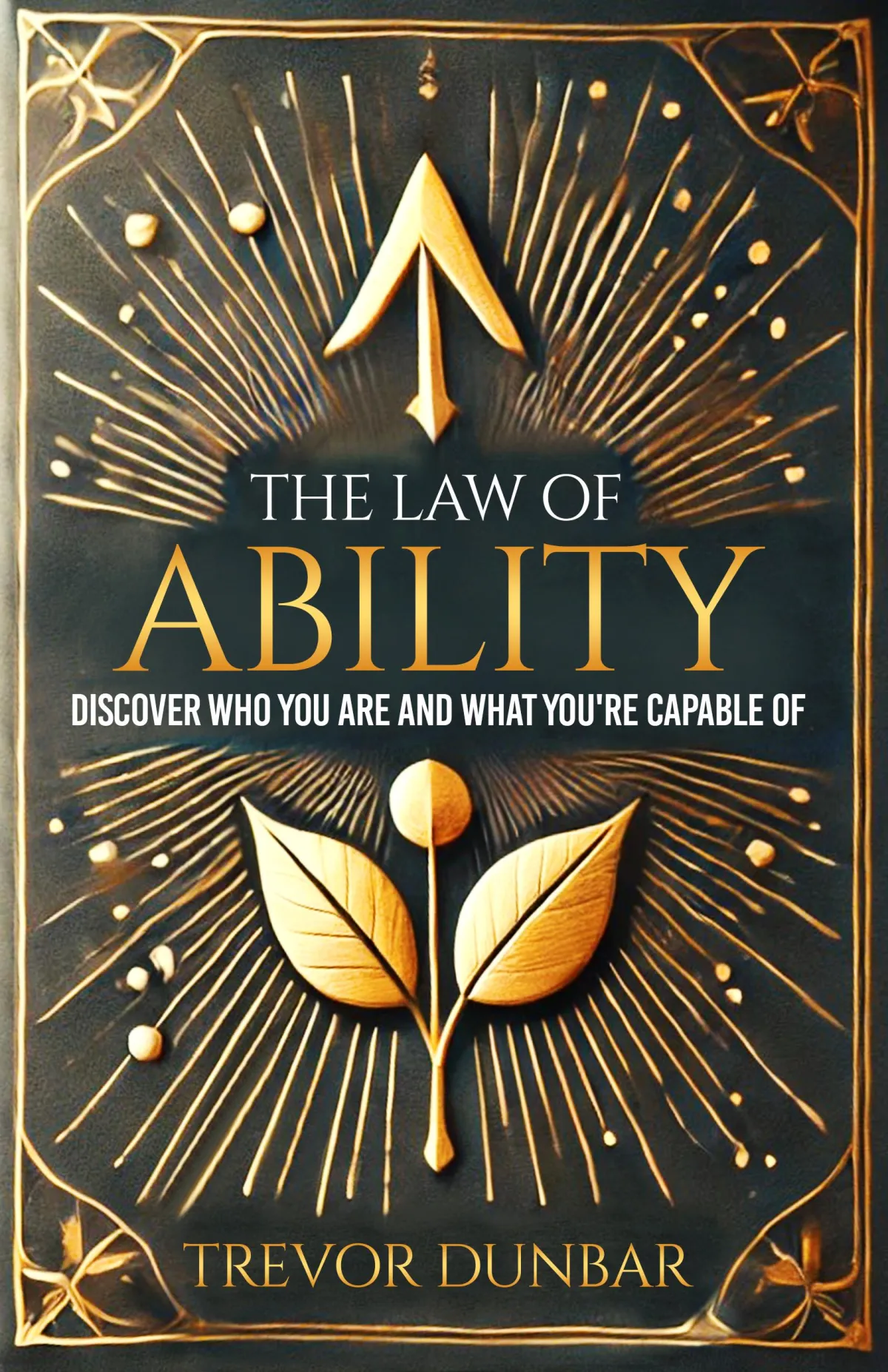
DISCOVER WHO YOU ARE AND WHAT YOU'RE CAPABLE OF...
APPAREL
BE PURE. STAY SAVAGE. LIVE BOLDLY.
Wear the Movement. Represent the Mindset.
Wear the Movement.
Represent the Mindset.

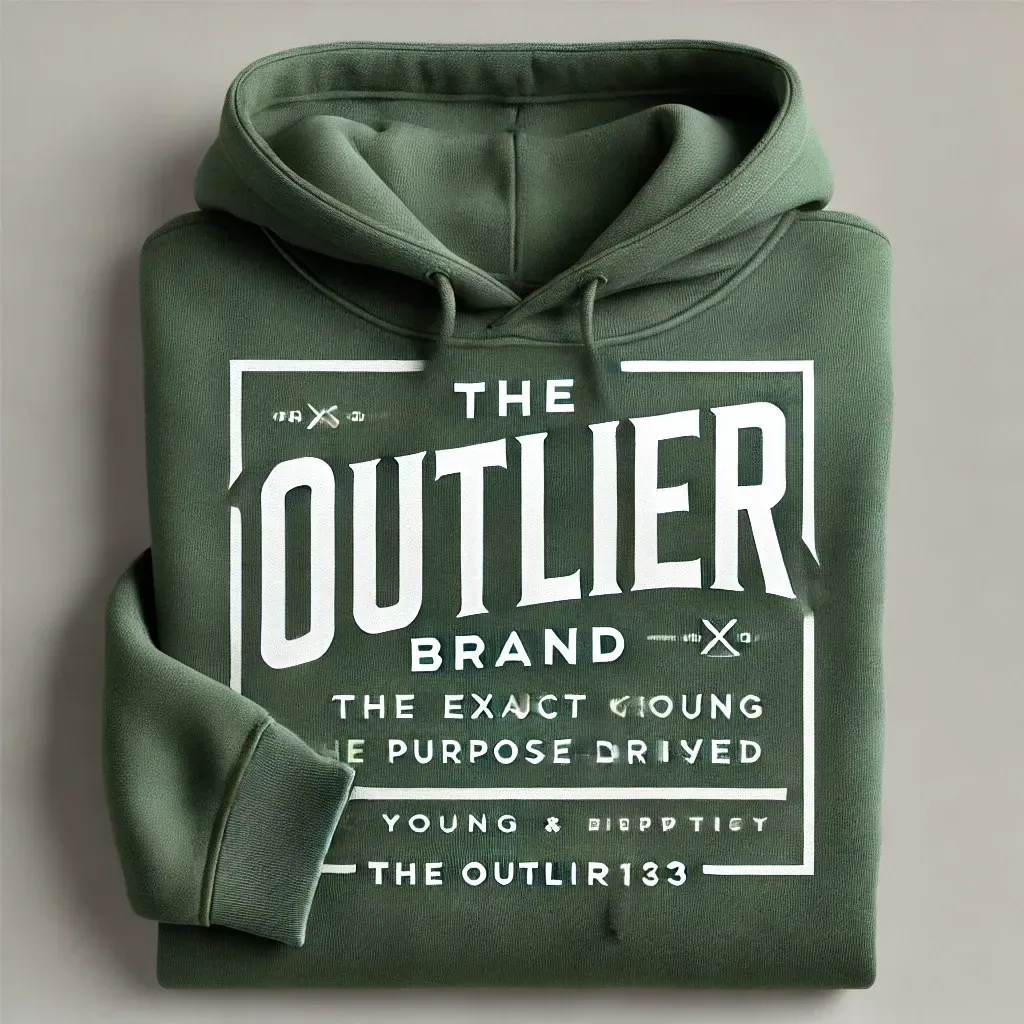
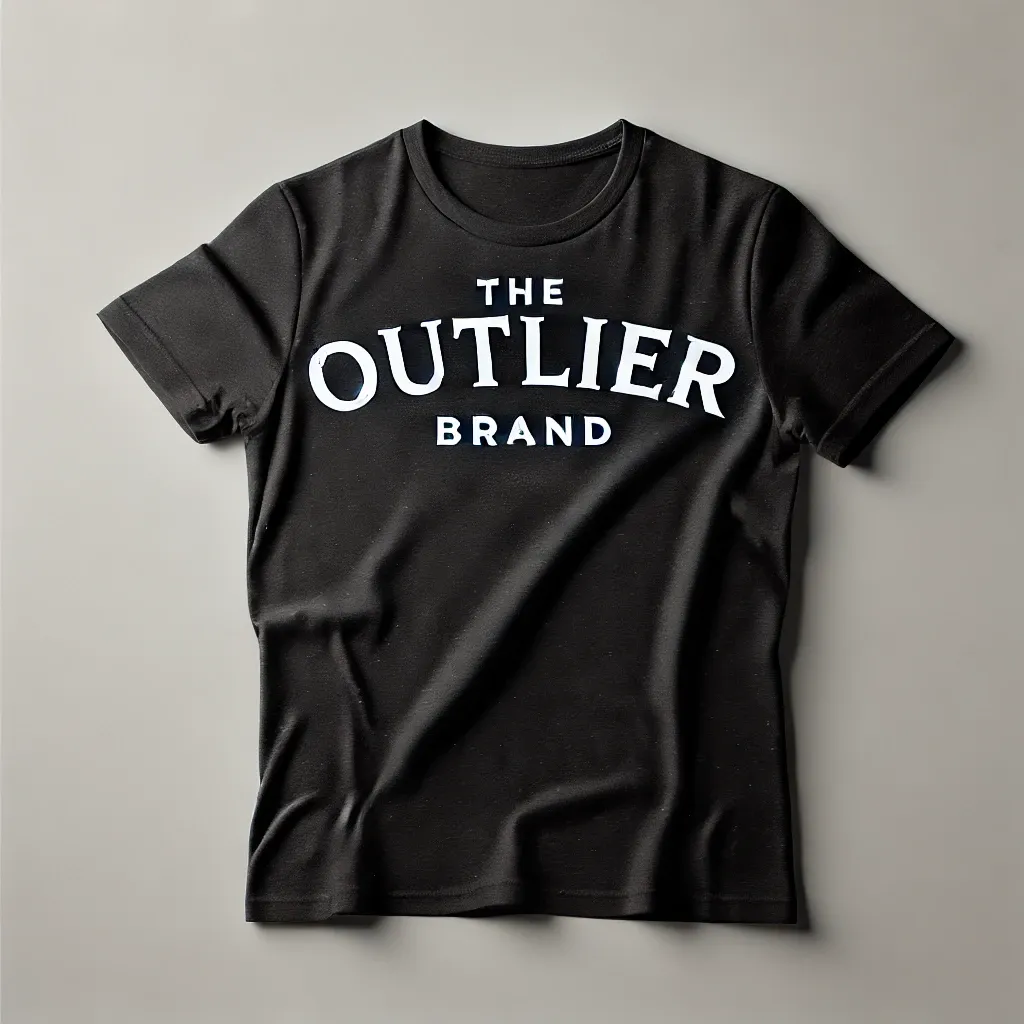
ABLENOMICS
THE LAW OF ABILITY

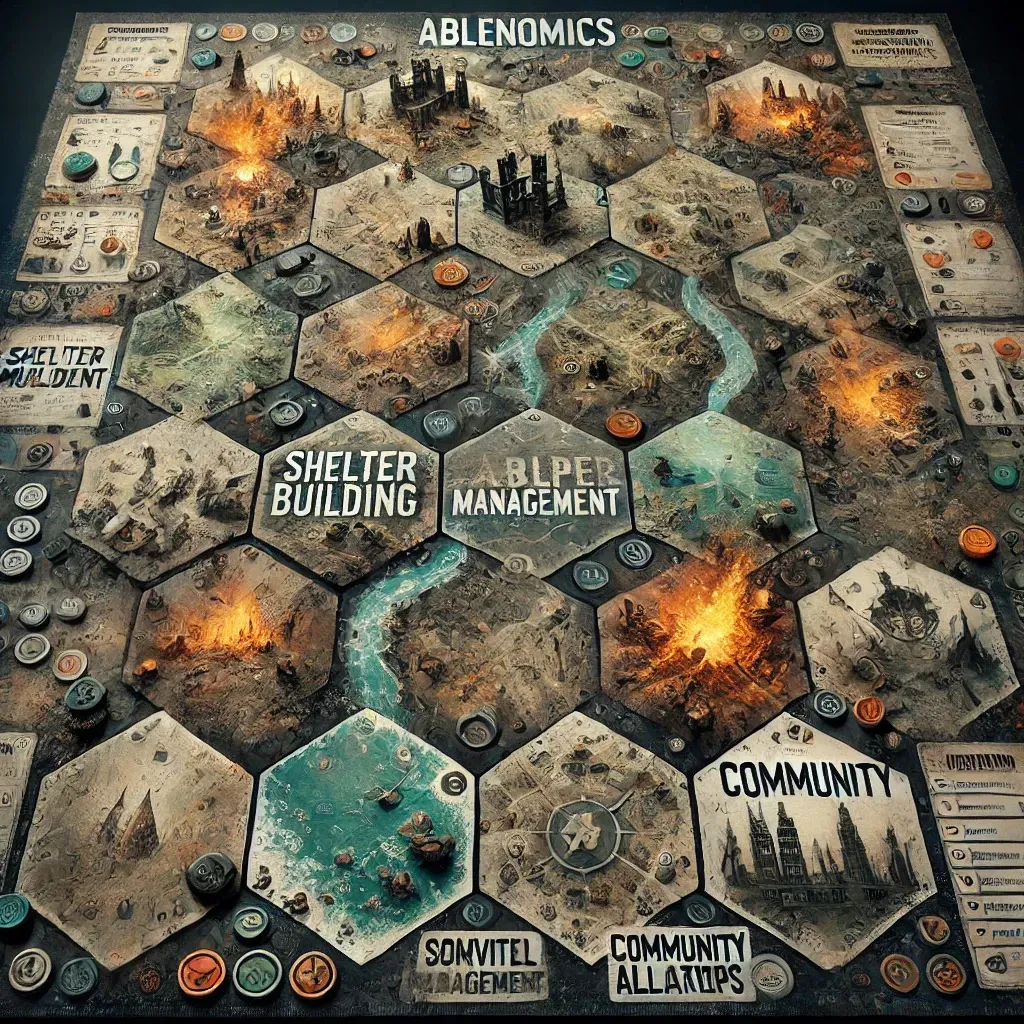



THE OUTLIER BRAND
READ THE LATEST BLOG

Why Christianity Is the Sin No One Is Talking About—And Why We Should
Let’s get one thing straight: Christianity doesn’t operate like a cult—it is a cult.
cult
/kəlt/
noun
A system of religious veneration and devotion directed toward a particular figure or object.
Christianity has become the very thing Paul the Apostle and Jesus warned against: a system built on division, thriving on sectarianism, and twisting the Kingdom of God into a tribal game of “us versus them.” This isn’t an attack—it’s an undeniable truth no one wants to talk about.
Sectarianism, a sin so blatant and destructive, has become woven into the fabric of Christianity itself, undermining the power of the Gospel. Instead of uniting believers, it divides them through factions, conflicting doctrines, and self-righteousness.
Even more, many Christians quickly forget where they came from before finding God. Once saved, they often place judgment on those who aren’t “righteous” or haven’t had the same spiritual awakening. While this judgment may not always be overt, it’s often subtle and easy to recognize for those who are discerning. Instead of remembering the grace that saved them, they fall into a mindset that alienates others, creating walls instead of bridges.
This is not the Kingdom of God. The Kingdom unites under truth and purpose, while sectarianism and judgment divide, weakening the very message of grace, mercy, and love that Jesus exemplified.
Paul the Apostle’s Warnings Against Division
Paul addressed the issue of division head-on when he wrote to the Corinthians:
"I appeal to you, brothers and sisters, in the name of our Lord Jesus Christ, that all of you agree with one another in what you say and that there be no divisions among you, but that you be perfectly united in mind and thought. My brothers and sisters, some from Chloe’s household have informed me that there are quarrels among you. What I mean is this: One of you says, ‘I follow Paul’; another, ‘I follow Apollos’; another, ‘I follow Cephas’; still another, ‘I follow Christ.’ Is Christ divided?" —Apostle Paul
Paul’s question—“Is Christ divided?”—was as piercing then as it is now. Today, the church remains fractured into denominations,non-denominations, factions, and theological camps, all claiming to follow Jesus but often at odds with one another.
Here’s the hard truth: Christianity is inherently sectarian. It draws lines, creates camps, and builds walls that Jesus never intended. Jesus called us to make disciples, not Christians.
Paul’s frustration with the Corinthians reflected his deep concern for unity in the church and its faithfulness to the Gospel. By the time he wrote 1 Corinthians, approximately 20 years after Jesus’ death, the church was already struggling with internal conflicts, factions, and leadership disputes. A few years later, in 2 Corinthians, Paul’s concerns had intensified as these divisions persisted, further fueled by external influences and false teachings.
The Root Causes of Division
In 1 Corinthians 1:10–13, Paul explicitly addressed the divisions among believers. Some aligned themselves with specific leaders—Paul, Apollos, Cephas (Peter), or Christ—creating factions within the church. These divisions were rooted in:
Pride: Personal loyalties to leaders over Christ.
Preferences: Misguided priorities that elevated human leadership above spiritual truth.
Misunderstanding Spiritual Authority: A failure to grasp that Christ alone is the head of the church.
Just as a father’s role in the family is to guide, protect, and unify, teachers and leaders in the church who call themselves shepherds bear a similar responsibility within the spiritual community. But when fathers neglect their role or prioritize their pride and preferences, families fracture. Likewise, when spiritual leaders elevate their own authority or doctrines above Christ’s message, the church becomes divided. These failures mirror one another, showing how both familial and spiritual unity are essential for growth and strength. Yet, too often, these leaders build walls instead of bridges, distorting their role as shepherds.
Paul identified the devastating effects of these divisions:
Undermining Unity: The church was meant to function as one body, unified under Christ. These divisions distorted that vision.
Distracting from the Gospel’s Power: By focusing on human leaders, the church lost sight of the transformative power of Christ’s death and resurrection.
Weakening Their Witness: A divided church could not effectively represent the message of reconciliation and love central to the Gospel.
Paul’s Growing Concern in 2 Corinthians
By the time Paul wrote 2 Corinthians (55–57 AD), his concerns had escalated. Reports from Corinth revealed that while some had repented, others persisted in their divisiveness, questioning Paul’s authority and embracing false teachings. This prompted Paul to defend his apostleship and address the divisions with even greater urgency.
Paul’s alarm stemmed from several key issues:
Persistent Divisions: Despite his earlier corrections, factions continued to undermine his leadership and the church’s unity.
Influence of False Teachers: Paul referred to “super-apostles” in 2 Corinthians 11:5—individuals who sowed discord and distorted the Gospel for personal gain.
Spiritual Decline: These divisions and false teachings threatened to erode the church’s foundation, pulling believers away from their “sincere and pure devotion to Christ” (2 Corinthians 11:3).
Paul’s Vision for Unity
Across both letters, Paul passionately appealed for reconciliation and unity under Christ. He reminded the Corinthians that their allegiance belonged to Jesus, not human leaders:
"I appeal to you, brothers and sisters, in the name of our Lord Jesus Christ, that all of you agree with one another in what you say and that there be no divisions among you, but that you be perfectly united in mind and thought." —Apostle Paul
In 2 Corinthians, Paul’s warnings took on an even more urgent tone:
"But I am afraid that, as the serpent deceived Eve by his trickery, your minds will be led astray from sincere and pure devotion to Christ." —Apostle Paul
Paul envisioned a church marked by love, humility, and spiritual maturity—qualities that transcend the petty divisions threatening its fellowship and witness. His timeless call remains a challenge to today’s believers: reject division, embrace unity, and keep Christ as the ultimate foundation of faith.
A Kingdom Divided Cannot Stand
Jesus made it clear:
"Every kingdom divided against itself will be ruined, and every city or household divided against itself will not stand." —Jesus of Nazareth
So why are we surprised that those who claim to follow Jesus have lost their power? Why are we shocked that the world doesn’t take “Christians” seriously? When the church is more concerned with defending its brand and doctrines than embodying the love and power in the Kingdom of God, it becomes just another divided empire.
Let me be blunt: Christianity is not the Kingdom of God.
The Kingdom is a realm of unity, authority, power, and freedom under the reign of Christ. Christianity, on the other hand, is a fractured system of man-made rules, traditions, and power structures. It’s everything Jesus came to destroy.
Jesus Didn’t Preach Christianity—He Preached the Kingdom
Jesus didn’t come to start a religion. He didn’t die to establish denominations, build church buildings, or create doctrinal statements. He came to bring the Kingdom of God—a realm of power, purpose, and relationship with the Father.
Jesus wasn’t interested in reforming the religion of the day; He came to replace it with the Kingdom of God. He was a revolutionary, not a reformist. His mission was rooted in freedom—freedom from the heavy burdens of religious legalism, freedom from the fear of condemnation, and freedom to walk in relationship with the Father. The Kingdom is not about rules and rituals; it’s about living in the authority, power, and purpose that come from being fully aligned with God’s will. True freedom is found not in religion, but in the Kingdom—a realm where love, grace, and truth reign.
His mission wasn’t to tweak broken systems or improve flawed traditions but to establish something entirely new. The Kingdom of God isn’t a patch sewn onto the old garment of religion—it’s a completely new way of life, built on relationship with the Father, not rituals or rules.
Revolution, not reform—that’s the message of the Kingdom. Yet somewhere along the way, man decided the Kingdom wasn’t enough. We replaced the simplicity of Jesus’ message with a religion that glorifies division.
Why This Sin Is Overlooked
The reason no one talks about this is simple: exposing the sin of Christianity threatens the entire system.
Leaders won’t challenge it because their power depends on it.
Believers won’t confront it because it’s comfortable.
And the world looks on in confusion because the church’s message is fractured, weak, and hypocritical.
Here’s the harsh reality: a divided church has no power to lead a world seeking unity, truth, and reconciliation.
The Kingdom Is the Answer
The “church” as written in the New Testament, translates from the Greek word ekklesia. Ekklesia is a combination of the Greek words kaleo (to call) and the prefix ek (out), which means "the called-out ones"—I call them Outliers.
It’s time for "the called out ones"—the Outliers—to unite and equip themselves to save their families and advance the Kingdom. If you’re tired of the division, hypocrisy, and powerless religion of Christianity, there’s good news: the Kingdom of God is still available.
The Kingdom is not a belief system, theology, doctrine, religion, denomination, or a set of rules. It is the reign and rule of God, a supernatural realm where His will is accomplished on earth as it is in heaven. In the Kingdom, believers live as its citizens, unified under Christ, walking in the authority He has given, and reflecting God’s power in every area of their lives.
This is what Jesus preached.
This is what Paul fought for.
And this is what Christianity has abandoned.
"Again, the kingdom of heaven is like a merchant looking for fine pearls. When he found one of great value, he went away and sold everything he had and bought it." —Jesus
Reclaim What Religion Stole from You
Many people struggle to articulate the difference between the Kingdom of God that Jesus preached—marked by power and freedom—and the superficial, confusing religion of Christianity that many have inherited. Over the years, truth seekers have turned toward spirituality instead of Christianity because they saw the flaws in the religious system and in many of its followers.
This is why I created Outpost Groups.
In 2005, God revealed to me the vision for Outpost Groups—a global discipleship network and resource cooperative for the called out ones (the Outliers) who were fed up with routines and powerless religion, but wanted to walk with God and experience the power of the kingdom. During prayer, I heard Him say to create a decentralized network where believers could unite and be equipped with the mind of Christ, the heart of the Father, and the power of the Spirit.
These groups aren’t about building another system—they’re about reclaiming the simplicity and power of the early church: the ekklesia.
Early disciples of Christ were the called-out ones, the Outliers, not participants in Christianity as we know it today—the religion based on the person and teachings of Jesus of Nazareth, along with its beliefs and practices.
This Network Was Designed to Prioritize
Conviction Over Program: Genuine faith and belief over structured religious activities.
Movement Over System: Organic growth and action rather than rigid institutions.
What It Rejects
Doctrinal Statements: Outpost Groups prioritize unity in Christ, rejecting divisive theological debates.
501(c) Non-Profit Constraints: Free from government oversight, the mission is guided solely by God’s Spirit.
Hierarchical Leadership Structures: God grants each believer authority in Christ, emphasizing mutual accountability and Spirit-led participation.
Performance-Based Faith: Faith flourishes through relationship with God, not through deeds, attendance, or financial contributions.
Shame, Guilt, and Obligation: Motivation stems from love and freedom in Christ, not manipulation or obligation.
Institutional Building Campaigns: Resources are invested in people and communities, not physical structures.
Clergy Dependence: Every believer is empowered to hear directly from God and walk in their unique calling.
Routine Over Relationship: Worship and connection with God are authentic, happening anywhere and anytime, rather than confined to rituals.
Instead, Outpost Groups form a community of unity—believers sharing resources to advance businesses, strengthen communities, and build families. Together, they live in authentic devotion to Christ, embodying the freedom, power, and purpose of the Kingdom
Outpost Groups leverage online connections while centering on personal, intimate gatherings—whether in homes, on outings in nature, or in workplaces. These gatherings, whether two or more, are about seeking God and experiencing His love and power.
This network of Outliers is designed to walk in the authority of sons and daughters of God, defeating Satan’s attacks instead of standing defenseless. Christianity has modeled “a form of godliness without power”—Outpost Groups exist to change that.
What Paul the Apostle Said About Christians
It was today’s Christians that Paul warned about in his letter to Timothy:
"But mark this: There will be terrible times in the last days. People will be lovers of themselves, lovers of money, boastful, proud, abusive, disobedient to their parents, ungrateful, unholy, without love, unforgiving, slanderous, without self-control, brutal, not lovers of the good, treacherous, rash, conceited, lovers of pleasure rather than lovers of God—having a form of godliness but denying its power. Have nothing to do with such people." —Paul the Apostle
These weren’t “worldly” people, as Christians often describe those outside their faith. These were religious people with a form of godliness but no real power. Paul’s instruction was clear: have nothing to do with such people.
Breaking Free from the Cult of Christianity
If you’re ready to break free from the cult of Christianity and step into the Kingdom, it starts with reclaiming your identity, your authority, and your purpose.
That’s why I wrote The Good Cult.
In The Good Cult, I expose the lies of religion and show you how to live in the freedom and power of the Kingdom of God. This isn’t about tearing down faith—it’s about rebuilding it on a foundation of truth, unity, and purpose.
Transformation Happens in Community
But reading a book isn’t enough. True transformation happens in community.
That’s why we’ve created Outpost Groups, a global fellowship of Kingdom-minded leaders who refuse to settle for the mediocrity of Christianity.
Outpost Groups are where believers come together to:
Live boldly.
Think differently.
Embrace the lifestyle of the Kingdom.
Are you ready to leave behind the powerless form of religion and step into the fullness of the Kingdom?
Enter the Movement—The Outlier Brand
Fellowship rooted in authenticity, freedom, shared purpose, and an openness to the tangible presence and power of God.
"For where two or three gather in my name, there am I with them.” —Jesus
Outpost Groups foster genuine connection, spiritual empowerment, and Kingdom advancement.
Why Outpost Groups Matter
Outpost Groups meet the deep yearning for koinonia—a Greek word describing close, intimate fellowship marked by shared purpose and mutual encouragement.
By reclaiming the simplicity and power of the early church, Outpost Groups prioritize:
Unity Over Division: Building bridges, not walls, to strengthen relationships and shared purpose.
Empowerment Over Control: Encouraging every member to grow, contribute, and lead.
Encounter Over Routine: Seeking God’s power to transform lives in real, tangible ways.
Movement Over System: Prioritizing dynamic growth and action over rigid structures.
Conviction Over Program: Rooting every gathering in heartfelt belief and purpose rather than religious activities.
Outpost Groups are not a return to religion—they are a call to rediscover the Kingdom lifestyle Jesus intended. They offer the freedom, power, and purpose needed to create a lasting impact both personally and within the faith community.
Take Action
This is your chance to break free from religion, connect with others who share your vision, and step into the life you were created for.
Christianity is the sin no one wants to talk about. But now that you know the truth, what will you do?
This is an invitation, not an obligation.
Will you stay loyal to a system that divides and deceives? Or will you step into the unity, freedom, and power of the Kingdom of God?
Pick up The Good Cult.
Start an Outpost Group.
Begin living the bold, unapologetic life of the Kingdom.
Vist TheOutlierBrand.com to get started.
Be Pure. Stay Savage. Live Boldly.
—Trevor Dunbar
TESTIMONIES
HEAR WHAT OTHERS HAVE TO SAY
Rich was truly exceptional an outstanding professional who guided me through every step of the air duct cleaning process. Impressively, he documented the process with photos and videos, demonstrating genuine dedication to doing the job right. I'm immensely grateful for the excellent service.
Emily Johnson
Rich was truly exceptional an outstanding professional who guided me through every step of the air duct cleaning process. Impressively, he documented the process with photos and videos, demonstrating genuine dedication to doing the job right. I'm immensely grateful for the excellent service.
Emily Johnson
Rich was truly exceptional an outstanding professional who guided me through every step of the air duct cleaning process. Impressively, he documented the process with photos and videos, demonstrating genuine dedication to doing the job right. I'm immensely grateful for the excellent service.
Emily Johnson

THE OUTLIER BRAND
A LIFESTYLE OF TRUE FREEDOM
A LIFESTYLE OF TRUE FREEDOM
Be Pure. Stay Savage. Live Boldly.
© 2025 The Outlier Brand. All rights reserved.
Law of Ability™, The Outlier’s Way™, and The 13th Tribe™ are trademarks of Outlier Engine LLC.
